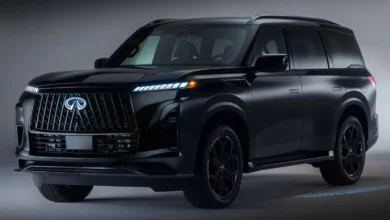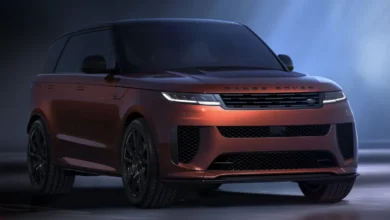2025 Genesis Reinvents Luxury with Hybrid and Extended-Range EV Lineup

2025 Genesis: In a significant pivot from its earlier all-electric ambitions, Genesis—the luxury arm of Hyundai—is now embracing hybrids and range-extender electric vehicles (EREVs) as part of its evolving strategy for electrification. This shift highlights how automakers are adapting to real-world consumer behaviors and evolving global markets, offering a more balanced and diversified approach to future mobility.
Why Genesis Is Changing Course from a Fully Electric Future
Just a few years ago, Genesis made bold declarations about its electrified future, committing to sell only electric vehicles by 2025. However, as of mid-2025, Genesis executives acknowledge that this strategy is being reconsidered due to consumer preferences, infrastructure limitations, and cost factors.
Mike Song, the global head of Genesis, recently admitted that the demand for fully electric vehicles (EVs) hasn’t grown as expected. Instead, customers—especially in markets like North America and parts of Asia—are showing more interest in hybrids and plug-in hybrids, where the benefits of electric drive are balanced with the reliability and convenience of internal combustion.
What Are EREVs and Why Are They Important?
Range-extender EVs (EREVs) are a relatively underexplored segment in the automotive industry. These vehicles use small battery packs combined with a gasoline engine, which acts as a generator to recharge the battery when needed. The vehicle is primarily powered by electricity, but the gasoline engine helps extend the range significantly without directly powering the wheels.
This configuration is a smart middle-ground solution for consumers:
- The “range anxiety” that comes with completely electric cars is eliminated.
- It allows smaller battery packs, which are cheaper and more sustainable.
- It caters to long-distance drivers and those who tow or travel in remote areas.
For Genesis, introducing EREVs offers the perfect balance between innovation and practicality.
Upcoming Powertrains: Hybrids, EREVs, and EVs
Genesis plans to launch a three-pronged electrification strategy beginning in 2025. This will include:
1. Traditional Hybrids
Unlike plug-in hybrids, these vehicles will combine turbocharged gasoline engines with an electric motor and battery pack, enhancing fuel economy and torque without requiring charging infrastructure. Genesis is expected to use:
- A 2.5-liter turbocharged engine paired with an electric motor offering up to 329 horsepower.
- A 1.6-liter turbocharged variant that produces about 280 lb-ft of torque.
These hybrid powertrains are expected to offer 30% to 45% better fuel economy than equivalent gasoline models.
2. Extended-Range EVs (EREVs)
Scheduled for launch between 2026 and 2027, EREVs from Genesis will likely:
- Use a rear-wheel-drive bias for performance and weight balance.
- Deliver up to 560 miles of total range, combining battery power with gasoline backup.
- Include advanced thermal management and regenerative braking systems.
EREVs are especially useful in markets with poor charging infrastructure or long commuting distances.
3. Dedicated Battery Electric Vehicles (BEVs)
Genesis isn’t abandoning its EV goals entirely. Its existing electric lineup—like the GV60 and Electrified G80—will continue to expand. The company is also working on a new-generation EV platform that will underpin multiple BEV models with faster charging and longer ranges.
Also Read: Chevrolet Corvette ZR1X: America’s Most Powerful Production Car Ever
Vehicle-to-Load (V2L) and Tech Innovations
One standout feature Genesis will integrate into its hybrid and EREV lineup is Vehicle-to-Load (V2L) capability. This allows the car’s battery to power external devices, such as laptops, camping equipment, or even household appliances during emergencies.
This V2L function, already present in Hyundai’s Ioniq and Kia’s EV lineup, adds a layer of utility and appeal for adventurous consumers and tech-savvy drivers.
The Role of the Genesis GV70 and GV80 in the Electrified Lineup

According to insider reports, Genesis may use the popular GV70 and GV80 SUVs as platforms for debuting its hybrid and EREV technologies. These vehicles already enjoy global recognition and success, making them ideal candidates for testing new powertrain options.
The GV70 EREV, for instance, could be assembled in Hyundai’s Georgia manufacturing plant for the North American market. This local production strategy could qualify it for federal tax incentives and reduce shipping costs.
Genesis Magma: Electrified Performance with a Bold Twist

Genesis is not only focused on efficiency—it’s also preparing for performance enthusiasts. The brand recently teased its Magma performance sub-brand, which will feature high-output electric vehicles with upgraded suspensions, sporty styling, and aggressive tuning.
The upcoming GV60 Magma edition, for example, is expected to generate over 600 horsepower and will go head-to-head with luxury EVs like the Tesla Model Y Performance and Porsche Macan EV.
A Global Strategy with Local Adaptations
One of Genesis’s most notable strategic shifts is its regional customization approach. Rather than forcing a one-size-fits-all EV transition, the company is acknowledging that:
- Because of the enormous distances and scarcity of charging stations, hybrids and EREVs are preferred in North America.
- Europe is more receptive to BEVs but still welcomes plug-in hybrids.
- Asia remains a mixed bag, with rapid urban electrification in some regions and slow progress in others.
This flexibility allows Genesis to scale its innovation according to consumer behavior and infrastructure readiness.
Timeline: What to Expect from Genesis by 2028
| Year | Milestone |
| 2025 | Launch of first traditional hybrid Genesis models |
| 2026 | Rollout of extended-range EVs (EREVs) |
| 2027 | Next-gen electric platform with improved BEVs |
| 2028 | Electrified vehicles (hybrids, EREVs, BEVs) to account for 40% of total Genesis sales |
This diversified roadmap aims to make Genesis a leader in premium electrified mobility, not just through full EVs but by leveraging flexible, scalable propulsion systems.
Also Read: Koenigsegg Sadair’s Spear: A Track-Focused Hypercar That Honors Racing Heritage
Final Thoughts: Evolution, Not Revolution
Genesis’s new electrification approach is best described as evolution over revolution. While the automaker initially targeted a fully electric future, it now recognizes that diversity in powertrain offerings is key to mass adoption and market resilience.
By offering a mix of hybrids, range-extenders, and pure EVs, Genesis is setting a course that acknowledges real-world challenges, delivers premium performance, and keeps customer satisfaction at the center of its innovation.







